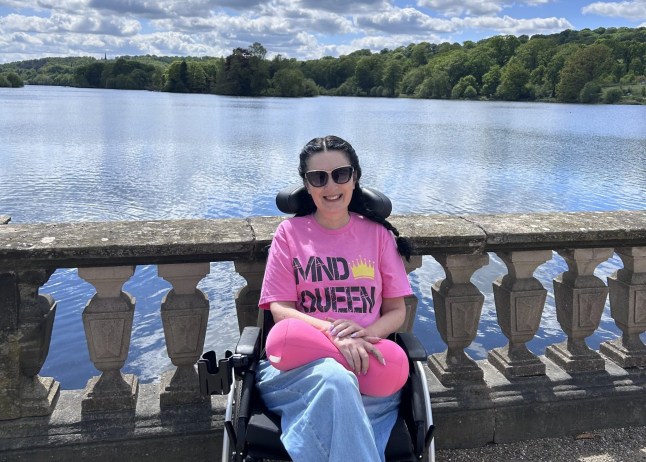
I looked down at the whirring hair dryer in my hand, perplexed.
I was a hairdresser – I spent my days styling and cutting hair, but suddenly my right arm felt so weak, I couldn’t hold the hair dryer up a second longer. It was as if it were made of lead.
At first, I thought I’d slept funny. Or maybe I was getting older and weaker – especially since it was the lightest dryer on the market.
I knew at that moment that something really wasn’t right.
It wasn’t the first time I’d had trouble with my strength. The signs had started six months earlier when I couldn’t push myself out of the bath easily.
I’d been struggling to hold the hair dryer for long periods, and on one occasion, my colleague had noticed my arm twitching.
I shrugged these moments off, putting them down to stress, being 55 years old, maybe even the menopause.
It was only when, on that same day, my speech started to slur that I knew something wasn’t right.
The fear began to creep in. I googled my symptoms and the first thing that came up was Stephen Hawking. That was when the dread truly settled in. I couldn’t bring myself to tell anyone, other than my best friend – I was terrified.
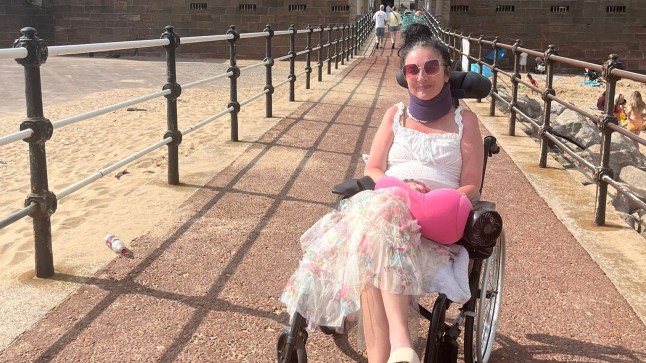
A few days later – on August 22 2021 – I rang my GP to discuss my symptoms of vertigo. That’s when she told me to call 999, and that I was having a stroke.
Terrified, I went to hospital and went through six months of endless tests: blood work, MRIs, lumber puncture and scans.
Then there were the misdiagnoses. First they thought it was menopause. Then a stroke. Then multiple sclerosis.
Finally, one day in September 2022, the neurologist delivered the unthinkable news: ‘You have motor neurone disease’.
I was told that 50% of people with MND die within three years; 90% within 10. There’s no cure and nothing to slow it down.
In the moments that followed, my first thought was of my children. I’m a single mum to three grown kids and I’ve always been their rock, their support. But at that moment, all I could think about was that I might not be there for them much longer.
I was terrified of leaving them to face life without me.
Three years on, I’m one of the ‘lucky’ ones who have made it this far – but I can feel myself deteriorating every day, asking for more help.
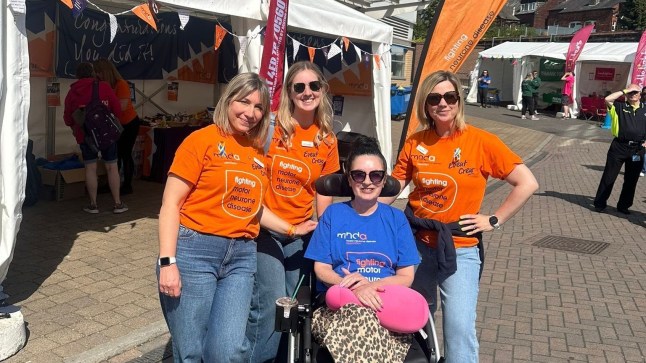
Now, I can no longer dress myself, cook for myself, or even get out of bed on my own.
My arms are completely paralysed, my fingers are curling and I can’t lift my head without help. My torso and neck are losing strength, and I can’t even stand on my own anymore.
My lung strength is down to 50%, so I rely on a machine to help me breathe at night, and I choke every time I eat. And just recently, I’ve had the operation for a PEG tube to feed me because swallowing will become impossible.
The thing I dread every day is when my voice will go, because I don’t know how I will express myself, or tell my family I love them.
It breaks my heart to think about my children one day having to care for me in ways I never imagined.
As their mother, I’ve always been their protector. Now, I’m the one who needs their help.
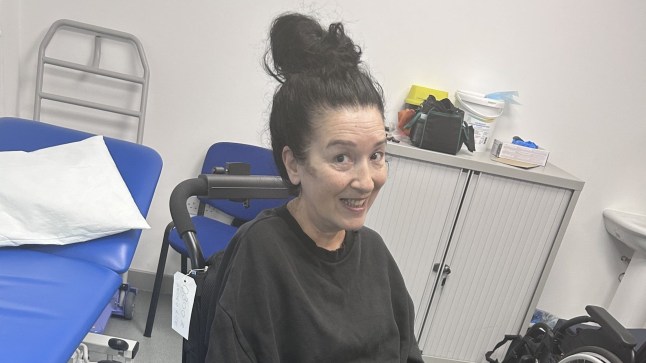
My children have been so strong. I’ve had the discussion that I don’t want them to put their lives on hold just because of me but that I will fight this for as long as I can. They understand, but watching silently while the person they love deteriorates is traumatic.
When I explain my condition to people, they often ask, ‘Oh, you’ve got MS, right?’ They don’t know what MND is, or how brutal it is.
This is a disease that takes everything from you, slowly – and the fact that people don’t even understand what it is hurts just as much as the disease itself.
Among my own social circle, I know eight other women hairdressers with MND. These women – daughters, mothers, friends, wives – are all being forgotten in this fight, as we feel that too much of the MND focus is around men, particularly elite sportsmen.
When I was diagnosed, I vowed to make a difference. I wanted my story to be something that raised awareness. So last year I started a Facebook support group for women with MND called MND QUEENS.
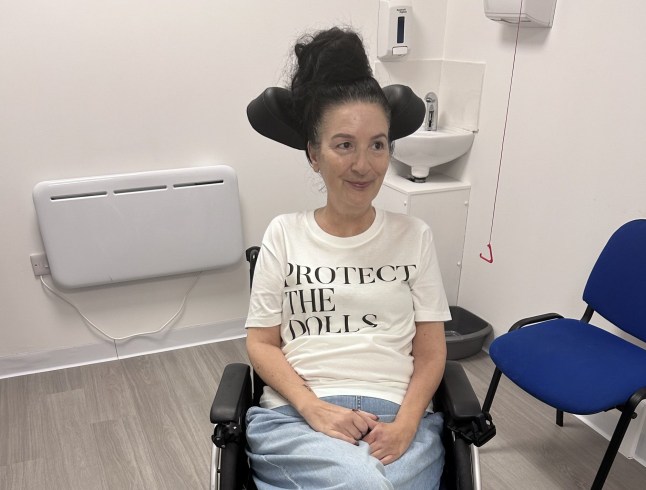
It’s a group for women with and, who have been affected by MND. We support each other, talk about MND care, menopause, treatment equipment, our families, accessibility, mental health and so much more. We even have our own t-shirts!
I’ve also worked with the MND Association on their #teammnda campaign, as well as fundraising for research and advocacy.
The association has really helped me since being diagnosed, but it is significantly underfunded.
No one should have to go through what I’m going through, left to watch my body deteriorate, one part at a time.
The more that people understand what this disease does to people, the more money we can raise to find a cure. So I write this not for sympathy, but to raise awareness, and to make sure my children know that I fought to find that cure.
Because no one should ever have to hear those words: ‘You have MND’ – and I will fight to the end for people living with this disease.
Do you have a story you’d like to share? Get in touch by emailing Ross.Mccafferty@metro.co.uk.
Share your views in the comments below.
Write Reviews
Leave a Comment
No Comments & Reviews